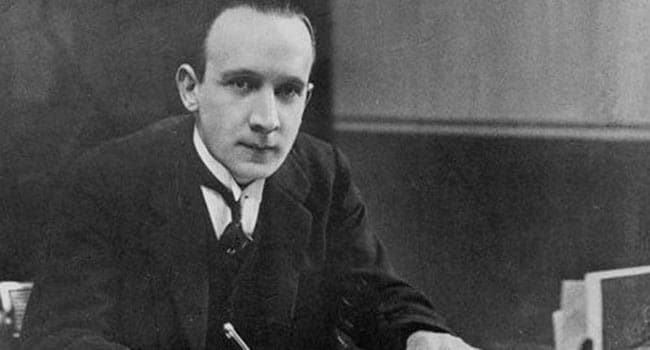 On July 10, 1927, Irish cabinet minister Kevin O’Higgins was murdered while en route to Sunday mass. It was payback for the role O’Higgins played in the Irish Civil War that ended four years earlier. The three perpetrators were never prosecuted.
On July 10, 1927, Irish cabinet minister Kevin O’Higgins was murdered while en route to Sunday mass. It was payback for the role O’Higgins played in the Irish Civil War that ended four years earlier. The three perpetrators were never prosecuted.
Decades later, I had a conversation about this with my father, who told me that the identity of at least one of the killers was common knowledge. In fact, he said, the killer boasted about it.
My father was a civil servant whose private political views weren’t sympathetic to O’Higgins, but he didn’t in any way condone the murder. Still, he wasn’t surprised that the killer was free to dine out on his exploits. In a culture susceptible to romanticizing political gunmen, such was to be expected.
O’Higgins wasn’t the warm, lovable type. Portraits fall within a fairly narrow band.
There’s this: He “won much respect, much hatred, and little popularity.”
And this: “A strong and extremely able man, but one who had no toleration for consultation much less for advice.”
But perhaps the sharpest characterization comes from Irish historian Joseph Lee: “O’Higgins’s view of human nature in general, and of Irish nature in particular, was profoundly pessimistic. He had something of the character of the idealized Roman consul, or perhaps of the better sort of colonial governor. Able, energetic, fearless, stern, dedicated to his concept of the public good, he refused to be cowed, even by the murder of his father, from his duty to inculcate a sense of public responsibility into the reluctant natives.”
For such a man, an event as intrinsically divisive as a civil war could only generate one response. He would be totally ruthless. He would do whatever was necessary.
The Irish Civil War (1922-23) was a nasty, sordid little affair, punctuated by what we’d now call atrocities. Stripped to its essence, it can be ascribed to people whose prior “life as guerrilla comrades had given them a taste for power as well as a cavalier attitude towards democratic decisions.”
The catalyst was the December 1921 Anglo-Irish Treaty, which proposed to end the War of Independence by “establishing the Irish Free State as a self-governing dominion within the British Commonwealth.” To its supporters – the majority of Irish parliamentarians and voters – the treaty was an acceptable compromise. To its opponents, it was a betrayal of republican ideals and democratic approval was irrelevant.
This was the context in which O’Higgins became “the strong man” of the new pro-treaty Irish government. The anti-treaty rejection of democratic authority wouldn’t be tolerated and armed rebellion would be suppressed.
So when the anti-treaty Irregulars took to shooting parliamentarians, prisoners from their ranks were shot in reprisal. In all, the new government executed 77 prisoners and O’Higgins was prepared to execute whatever additional number was required. By the early summer of 1923, the anti-treaty rebellion had collapsed.
However, the related bitterness continued to disfigure Irish politics for the balance of the 20th century. And the cult of the righteously self-appointed gunman continued to resonate, with O’Higgins as an early casualty.
It would be tempting to think of the Irish Civil War as an inevitable consequence of the struggle for independence. But it wasn’t.
The treaty debate wasn’t about something substantive like the partition of the island into Northern Ireland and the Irish Free State (the precursor of the current Republic of Ireland).
Instead, it was about the secondary oath of allegiance that Free State parliamentarians would be required to take by virtue of common citizenship with Britain and Commonwealth membership. To diehard republicans, any recognition of the king of England was anathema and thus worth fighting about.
Ultimately, the oath proved eminently susceptible to a fudge and was abolished in 1933. By then, though, a civil war had been fought.
Nor, as Lee points out, was such conflict normal experience in post-1918 Europe. “For all their internal instability, only two of the new east European states, Finland and Hungary, managed to mount civil wars after independence: and even they found substantive social issues on which to fight.”
Canadians are often told that our history is bland. We should take that as a compliment.
Troy Media columnist Pat Murphy casts a history buff’s eye at the goings-on in our world. Never cynical – well perhaps a little bit.
The views, opinions and positions expressed by columnists and contributors are the author’s alone. They do not inherently or expressly reflect the views, opinions and/or positions of our publication.

